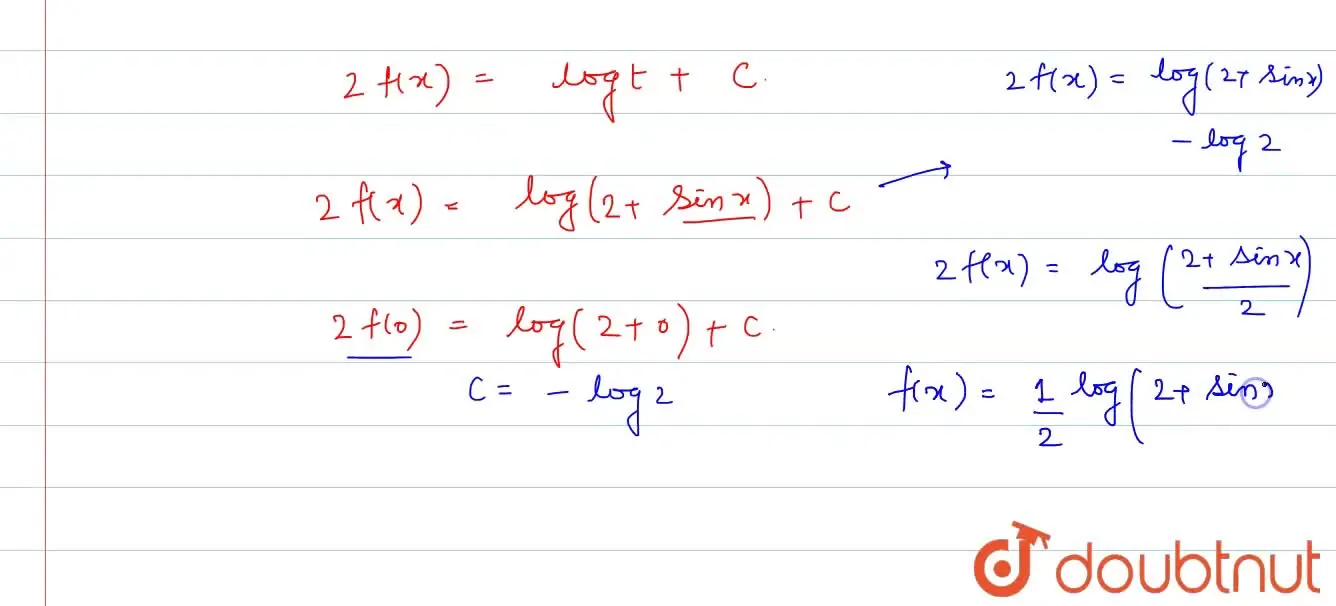A function is continuous for all (and not everywhere zero) such that . Then is
The correct Answer is:C
or (Differentiating w.r.t using Leibniz rule)
or [As is nor zero everywhere]
or ltbgt or
Put . Then or
Related Playlists
- BOOK - CENGAGECHAPTER - DEFINITE INTEGRATION EXERCISE - Exercise (Multiple)27videos
DEFINITE INTEGRATION
- BOOK - CENGAGECHAPTER - DEFINITE INTEGRATION EXERCISE - Exercise (Comprehension)31videos
DEFINITE INTEGRATION
- BOOK - CENGAGECHAPTER - DEFINITE INTEGRATION EXERCISE - Exercise 8.116videos
DEFINITE INTEGRATION
- BOOK - CENGAGECHAPTER - CURVE TRACINGEXERCISE - Exercise24videos
CURVE TRACING
- BOOK - CENGAGECHAPTER - DETERMINANTEXERCISE - Multiple Correct Answer5videos
DETERMINANT
Similar Questions
Find a function f, continous for all x(and not zero everywhere) such that f2(x)=∫x0f(t)sint2+costdt
View SolutionLet f(x)=∫x0f (t) dt equals
View SolutionLet f(x)=∫x0sinttdt(x>0) then f(x) has (n∈N)
View SolutionLet f(x) be a continuous function for all x, which is not identically zero such that {f(x)}2=∫x0 f(t) 2sec2t4+tant dtandf(0)=ln4, then
View SolutionIf f(x)=∫x20√costdt, find f'(x)
View Solutionif f be a differentiable function such that f(x)=x2∫x0e−tf(x−t). dt. Then f(x) =
View SolutionIf f(x)=cos−∫x0(x−t) f(t) dt, then f''(x)+f(x) equals
View SolutionIf f(x)=cosx−∫x0(x−t) f(t) dt, then f''(x)+f(x) equals
View SolutionIf f(−x)+f(x)=0 then ∫xaf(t)dt is
View SolutionFind a positive real valued continuously differentiable functions f on the real line such that for all x f2(x)=∫x0((f(t))2+(f′(t))2)dt+e2
View Solution


